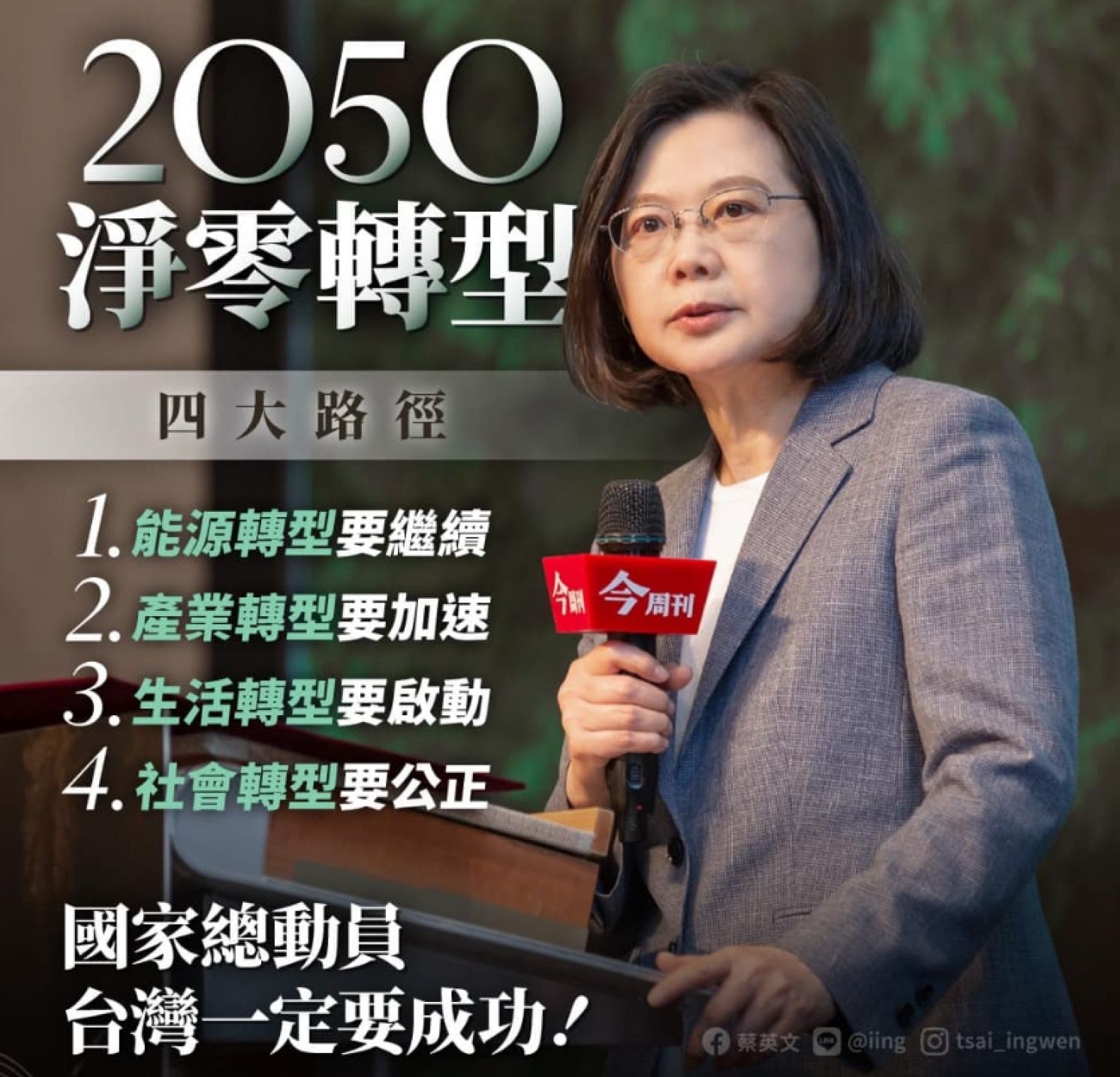
Asking the Devil to Bring the Cure:Tsai Administration Energy Policy Detriment to the Purse, Body, and Earth
United Daily News, December 9, 2023
As expected, during the 2023 United Nations Climate Change Conference (COP28) on December 8, independent organizations such as Germanwatch unveiled the annual Climate Change Performance Index (CCPI). Taiwan slipped four places to rank 61st globally, placing it among the bottom seven countries. In the "Greenhouse Gas Emissions" category, Taiwan ranked fourth from the bottom, securing the last position among non-oil-producing nations. It received a "very poor" rating in per capita carbon emissions and 2030 carbon reduction targets.
These embarrassing figures are not unique to this year but have been a recurring trend over recent years, with each year seeing a decline. The primary culprit behind this decline is undoubtedly President Tsai Ing-wen's energy transition policy.
President Tsai, Who Denies Power Shortage, Saw Four Major Blackouts During Tenure
Looking back eight years ago, before President Tsai won the 2016 election, she presented an ambitious energy policy. In a campaign speech, she confidently stated, "We already have a comprehensive plan, and it has been calculated that Taiwan will absolutely not encounter a power shortage crisis in the future."
However, within just over a year of taking office, Taiwan experienced a major blackout on August 15. Subsequently, there were additional large-scale blackouts on May 13, May 17, and March 3, marking four nationwide power outages during her tenure. Despite these events, the Tsai administration consistently denies a "power shortage," either shifting blame to Taiwan Power Company, Chinese Petroleum Corporation (CPC), or grassroots maintenance workers or attributing the issues to extreme weather conditions. It refuses to acknowledge any shortcomings in its energy policies.
Energy Transition Commitments Fall Short as Taiwan Approaches Deadline
As the global push for energy transition and carbon reduction initiatives demands sacrifices from nations, the Taiwanese government's energy transition policy, claiming to be flawless in balancing stable power supply, electricity prices, and carbon emissions, is facing broken promises seven years into its implementation. President Tsai's term is approaching its end, and the deadline for her energy transition plan is set for 2025. However, several commitments have already fallen through.
Initially, she asserted that renewable energy would constitute 20 percent of the energy mix by 2025. Still, Minister of Economic Affairs Wang Mei-hua admitted early on that this target was unattainable. However, consistent with the administration's adept skills in self-defense, they refuse to acknowledge planning flaws in the policy. Instead, they argue that "electricity consumption growth exceeded expectations." It turns out that President Tsai's 2015 calculation was based on ideal scenarios, leading to unmet goals in energy transition, as expected.
Apart from improper energy mix planning, what's more startling is the hurried abandonment of nuclear energy, resorting to expensive natural gas power generation. To prevent a substantial increase in electricity costs from becoming apparent before the elections, the Tsai administration has frozen and delayed electricity, oil, and gas prices multiple times, creating the illusion of "no significant increase" in electricity prices.
The Taiwan Power Company and CPC Corporation are estimated to face staggering losses of up to NT$400 billion (about US$12.7 billion) this year. These losses will ultimately be shouldered by the public, with President Tsai already out of office by then. Reflecting on President Tsai's view of the energy transition timetable, as relayed by Lee Yuan-tseh, former president of Academia Sinica: "After 2024, it's the next generation's concern." In essence, whether the energy transition policy succeeds is no longer her responsibility.
If, in exchange for financial costs and power shortages, the public achieved positive carbon reduction outcomes, that would be a shared accomplishment. However, the harsh reality is that after eight years under President Tsai's leadership, carbon reduction efforts have regressed. International independent organizations have certified Taiwan's dismal carbon reduction performance for years. This not only impacts future export orders for our businesses but also damages our international image. Moreover, the health of the Taiwanese people will continue to be affected by the air pollution caused by over 70 percent of electricity generated from fossil fuels.
Tsai and Lai Stick to Old Course Contradicting COP28 Carbon Reduction Advocates
COP28, marked by two significant carbon reduction initiatives — nuclear energy utilization and substantial reduction in the share of fossil fuel-based power generation — puts President Tsai and Vice President William Lai, also chairman and 2024 presidential candidate of the ruling Democratic Progressive Party (DPP), at odds. Both continue to rely on fossil fuel-based power generation, eschewing nuclear energy. With policies that harm the economy, public health, and the environment, will the Taiwanese people continue to follow the DPP down this well-trodden path?